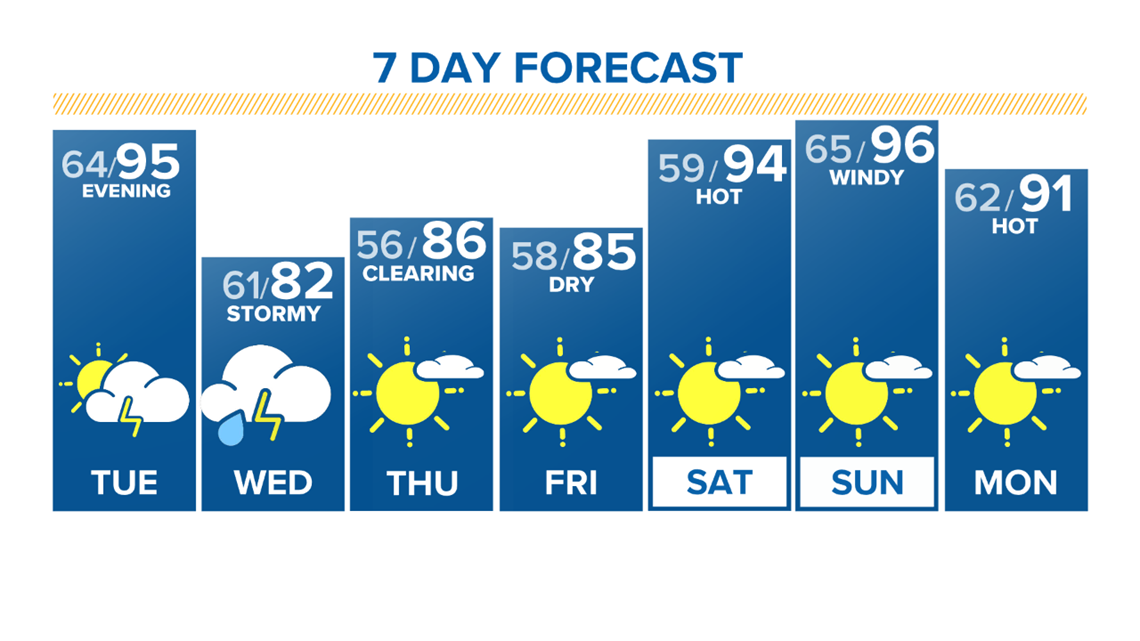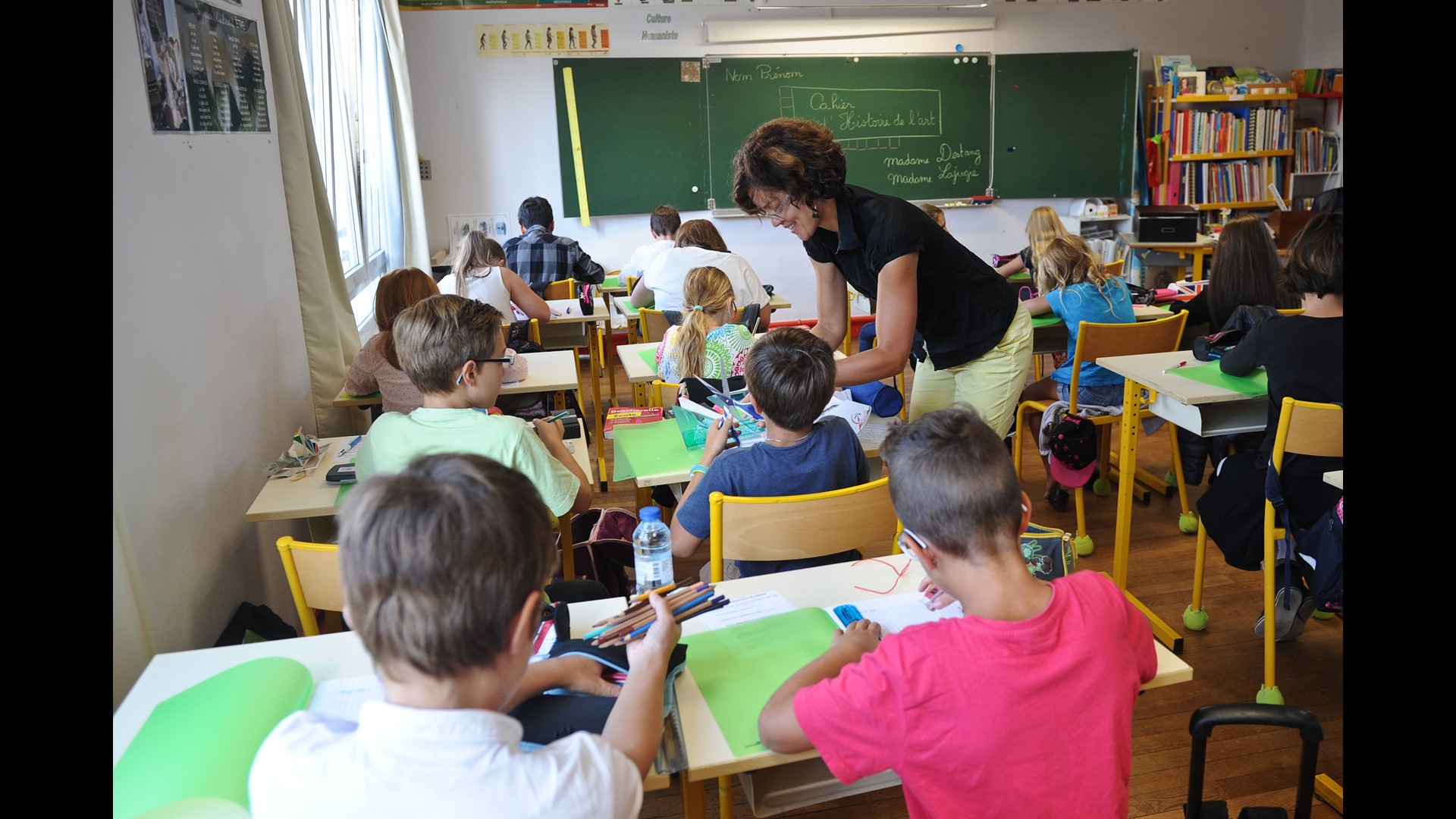COLORADO, USA — Students in Colorado are heading back to school Monday with above average, and even record-breaking temperatures.
Kendall Kelty, a fourth-grader at Steadman Elementary in Denver said, "It feels like a summer day because it is a summer day. But I really want to jump in a pool!"
Her teacher uses fans and turns out the lights to try to make her classroom a better environment for learning on these hot days -- before noon, some classrooms had already soared above 90 degrees.
Her principal, Michael Atkins, said his students' health is his No. 1 concern.
"We know with the heat comes sweat. With sweat comes a loss of water and a loss of fluid," Atkins said. "So I want to make sure our students are adequately hydrated."
Second-grade teacher Deborah Sims Fard spent her own money to help insulate the windows and block out the hot sun. But she's also using the heat in her lessons.
"The citizen scientist is in all of us," Fard said. "And them having ideas about what angle the fan should go and what happens if the fan blows over ice, just different ideas.”
A study out of Harvard last May shows that for every 1-degree temperature increase in the classroom, the students’ ability to learn decreased by 1%.
The study also found that air conditioning in schools “all but completely eliminated the impact of heat.”
But it will cost a lot of money to cool down all 60 schools.
“It’s about 200 million dollars of funding. About three to four million dollars per school to put air conditioning in,” Mark Ferrandino, Denver Public Schools deputy superintendent of operations said.
“We tell principals, if it’s an unsafe condition for students we give them the ability to one: work with their facilities teams and see what we can do to mitigate the heat," Ferrandino said, "but if it’s not something that is safe and conducive to learning, that they have the ability to close school early.”
A few years ago, a Colorado Climate report was released out of the University of Colorado. They updated it last year, and it states. “all climate projections indicate that heat waves will substantially increase in frequency and severity in Colorado as the summer climate becomes warmer." Changes could come as early as the mid-21st century.
DPS said they plan on continuing to look for solutions.
Temperatures are expected to stay above average Tuesday before dropping back into the 80s for Wednesday.


SUGGESTED VIDEOS | Science is cool

